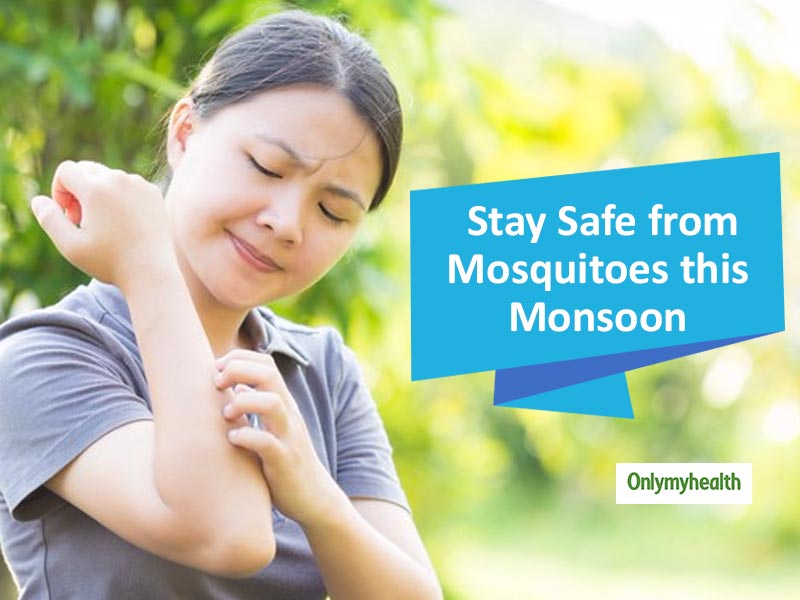
We all eagerly wait for Monsoon to arrive so that we get some relief from the hot and humid summer season. But this just doesn't bring rain but also blood-sucking mosquitoes which breed during this time of the year. They find targets to bite and spread life-threatening diseases. While malaria is the most common mosquito-borne disease, dengue is one of the deadly diseases which may even claim the life of the person! Therefore, it becomes very important that you keep yourself protected in this season. Either indoor or outdoor, make sure that you have taken all the possible preventive checks to escape mosquito bite.
Table of Content:-
Some interesting facts about mosquitoes
• There are estimated 1,000,000,000,000,000,000,000 (1,000 trillion) mosquitoes on planet Earth!
• They have been around for 30 million years, perfecting their ability to detect your heat, light, body odour, and carbon dioxide – thus adapting themselves to survive longer.
• Once you are bitten by either of the mosquitoes, the proteins in their saliva set up an immune response– swelling and itching.
• The diseases they spread have killed more people than all the wars in history.
• Worldwide, mosquito-spread diseases kill 2-3 million people every year by infecting an estimated 200 million per year with malaria or yellow fever, chikangunya and dengue fever.
Besides the usual diseases, there are other mosquito-transmitted disease that does the rounds during monsoon. Japanese Encephalitis is a serious infection that occurs in certain rural parts of Asia.

It causes the brain to swell and symptoms of severe infections include high fever, headache, neck stiffness, stupor, disorientation, abnormal movements, occasional convulsions (especially in infants), coma and paralysis. About 1 in 4 of such cases results in death.
Keeping the given facts in mind, there is a need to take adequate measures in this rainy season so that your child can enjoy the rain without falling prey to mosquito-spread diseases.
Also Read: Know About Skeeter Syndrome: Allergic Reaction To Mosquito Bites
Preventive measures to keep yourself protected with mosquito bite
Prevent stagnant water in and around your house – Open drains, shallow pools of water, air cooler water and so on can be chief breeding areas for mosquitoes. Make sure you change your cooler water regularly.
All water sources like wells, tanks, construction reservoirs, underground sumps and overhead tanks should be covered. Gutters and drainage systems should be of the closed type. Get the underground and overhead tanks cleaned, both before and after the monsoons.
Screens and netting – Installing netted screens on the doors and windows of your house allows ventilation without entry to the mosquitoes. In tropical countries like India where mosquitoes are more rampant, using mosquito nets over the beds when going to sleep is advisable.
Clothing can help reduce mosquito bites - When possible, wear long sleeves, long pants, and socks when outdoors. The lesser the amount of exposed skin, the lesser are the chances of getting bitten by the pesky bugs.

Use of mosquito repellants – Use of mosquito repellant creams or sprays, and other products like mosquito coils or mats/liquidators are mandatory during the monsoon.
Apply insect repellent containing DEET (N-diethyl-meta-toluamide) to exposed skin when you go outdoors. DEET is safe for pregnant and breastfeeding women and in children (in concentrations of 10% or less).
Picaridin and oil of lemon eucalyptus have been approved as natural mosquito repellants by many researchers. Studies show that both ingredients can help you guard against mosquito bites, although because of their lower concentrations, highly concentrated DEET products will last longer.
Also Read: Chikungunya and Rheumatoid Arthritis Are Different. Here Are Some Common Symptoms
Stay safe during peak mosquito hours - The time from dusk to dawn are peak mosquito biting hours for many mosquito species. Ensure to use repellent and wear protective clothes during these peak hours - or consider avoiding outdoor activities during these hours.
Always keeping these points in mind as they'll help you to prepare for the monsoon season. Go ahead, enjoy the rains and ensure that you have ‘covered’ everything well!
Read more articles on Other Diseases
How we keep this article up to date:
We work with experts and keep a close eye on the latest in health and wellness. Whenever there is a new research or helpful information, we update our articles with accurate and useful advice.
Current Version